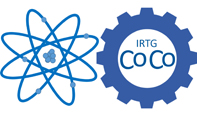16.05.2017 - Benedikt Hartl - Optimal Control of Collective Dynamics in Cavity-QED - A Spin Ensemble Based Storage Device
| When |
May 16, 2017
from 01:00 PM to 02:00 PM |
|---|---|
| Where | HS II, Physik Hochhaus, Hermann-Herder-Str. 3 |
| Add event to calendar |
|
Quantum technologies have made considerable progress in the past few decades. Particularly promising candidates for future applications, such as quantum computing and quantum information processing, are hybrid quantum systems that benefit from the advantages and strengths of their different constituents. A very actively developing research field of hybrid quantum systems is based on cavity quantum electrodynamics (QED). Specifically the collective interaction of a single-mode cavity with an inhomogeneously broadened spin ensemble embedded in a solid state host material has been studied intensively in the past few years. In the strong coupling regime the energy can be coherently transferred between the cavity and the spin ensemble, which is the key prerequisite for quantum information protocols. However, the practical applicability of such systems in scalable quantum circuits requires full control over the evolution of collective system variables.
In this talk I will present a protocol based on functional pulse shaping of the cavity input signals to optimally control the cavity-amplitude and the state of the spin ensemble in the low excitation limit. Specifically I will introduce a procedure where two optimized writing pulses are used to encode and store two different logical states (or superpositions thereof) in the spin ensemble. A subsequent readout is performed by a single optimized pulse which is designed to transfer the information stored inside the ensemble to the cavity such that the predefined response time of the cavity field uniquely determines the encoded state.
Our findings mark a further step towards a fully controllable solid-state quantum memory.
See poster.


